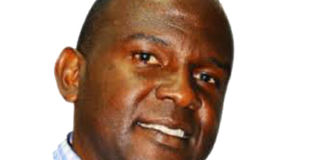Kidnap and murder: What happens when State disappears

What you need to know:
State is like a vehicle. The State is like a vehicle with many parts. A government like the NRM rents power in whichever way either by military coup, revolution, rigged or free and fair election, etc, and takes over the wheel of the State.
One of the most intriguing piece of the sad story regarding the sordid, audacious kidnap and eventual murder of a young woman, Maria Nagirinya, and her driver, Ronald Katayimbwa, is the part played by the Uganda Police Force (UPF.)
When the relatives reported the incident at a police station, the officer at the counter was allegedly drunk. They oscillated from one police station to another without getting any tangible help. They have buried their dead. The UPF as usual, is getting a good amount of stick as they ‘are still investigating,’ which has become a euphemism for buying time and eventually doing nothing. The UPF will suffer for a long time to come for things that are not actually their fault. This is because the Force is just one cog in a huge wheel called the State.
The State is like a vehicle with many parts. A government like the NRM rents power in whichever way either by military coup, revolution, rigged or free and fair election, etc, and takes over the wheel of the State. It then commandeers the State, servicing and maintaining it with the intention of providing adequate welfare of citizens. These include food, shelter, security, employment, healthcare, etc.
To achieve this, the government has to make laws, so there is the Legislature with well-paid and facilitated Members of Parliament. It has to adjudicate in times of dispute and conflict, so you have the Judiciary with judges and prosecutors. It has to originate and implement policy so you have the president, his Cabinet, RDCs, CAO and other officials of government to assist him in this vein. The army protects the country from external aggression while the police enforce the law and keeps order.
Now all these need constant fine-tuning to work well and in tandem for good results. The key factor in the State are the people who run it. They must be suitable for the work, well intentioned, motivated and facilitated. They must be protected and have to see a future and security in what they do.
The trouble with Uganda and the third world in general, is that the State is so weak and in some cases disappearing very fast. Most governments have deliberately or otherwise undermined plus replaced the State or fused it with the ruling party for the sake of perpetuation. So instead of the State, they have an alternative to the State, which is run by hand-picked individuals whose qualification is anything other than merit.
So the Legislature will be packed with people who only ‘wake up to vote’ and thus create laws that are favourable for the project of keeping the government in power. Then you have the Judiciary filled with what are called ‘cadres,’ who for all intents and purposes, are slanted in favour of those ruling at the moment. The story is no different with the Executive.
In such circumstances, inefficiency and profligacy is the norm, which at times is handsomely rewarded. The main object of what remains of the State is to maintain the status quo even if it means undermining good governance and constitutionalism. Those serving the State find themselves undermined and poorly motivated. Then a culture of just turning up to work becomes the custom.
In this sense, the police officer ends up being overworked with low pay, lives in poor housing, must fend for themselves for food and medicine. Even when they try, evidence gathering is overwhelming without proper facilities for transport, surveillance, forensics, modern and widely spread out CCTV cameras and other contemporary intelligence gathering technologies. Criminals will always be ahead of them or even patronise them.
With this background, in any situation, an officer struggles thinking about many things before they put themselves in harm’s way. If he gets injured or killed, for instance, who will provide for his children in the absence of a well-defined insurance police and social safety net?
What if he arrests people who are carrying out errands for people connected to people in places high up whose intention is keeping a president in the seat of power? What if this annoys the powers that be, leading to a transfer to a rural area where opportunities to make quick money under the table are zilch?
What happens when many of those who are arrested, taken to court, but then return to the streets and commit even more crimes, at times mocking the very officers who booked them?
Putting all this into consideration, many just lift the foot off the pedal and put in mediocre performances at best. At worst, the lack of proper focus, ambition and satisfying environment leads to many taking the wide path to hell and end up hunting with criminals.
The police are not an isolated entity. It takes the direction which the state takes. A State that cannot provide proper healthcare, education, employment and housing will find challenges with providing a force fit to police its people.
When the constructive side of the State shrinks, it is like a hurricane that takes everything in its path irrespective of its value and importance.
The Uganda Police Force is one of those treasures that have overtime gone down with the State.
Mr Sengoba is a commentator on political and social issues. [email protected].
Twitter:@nsengoba


